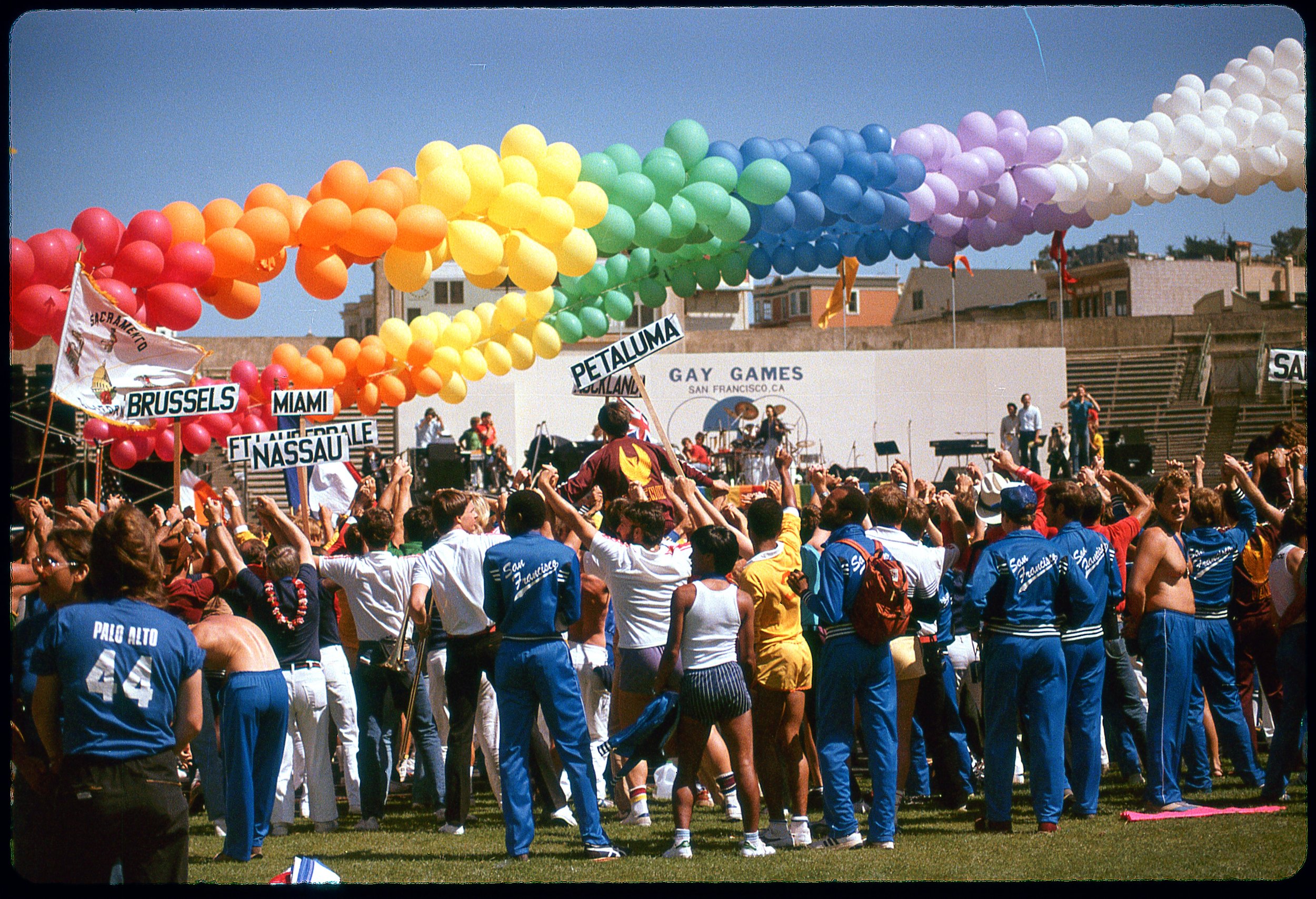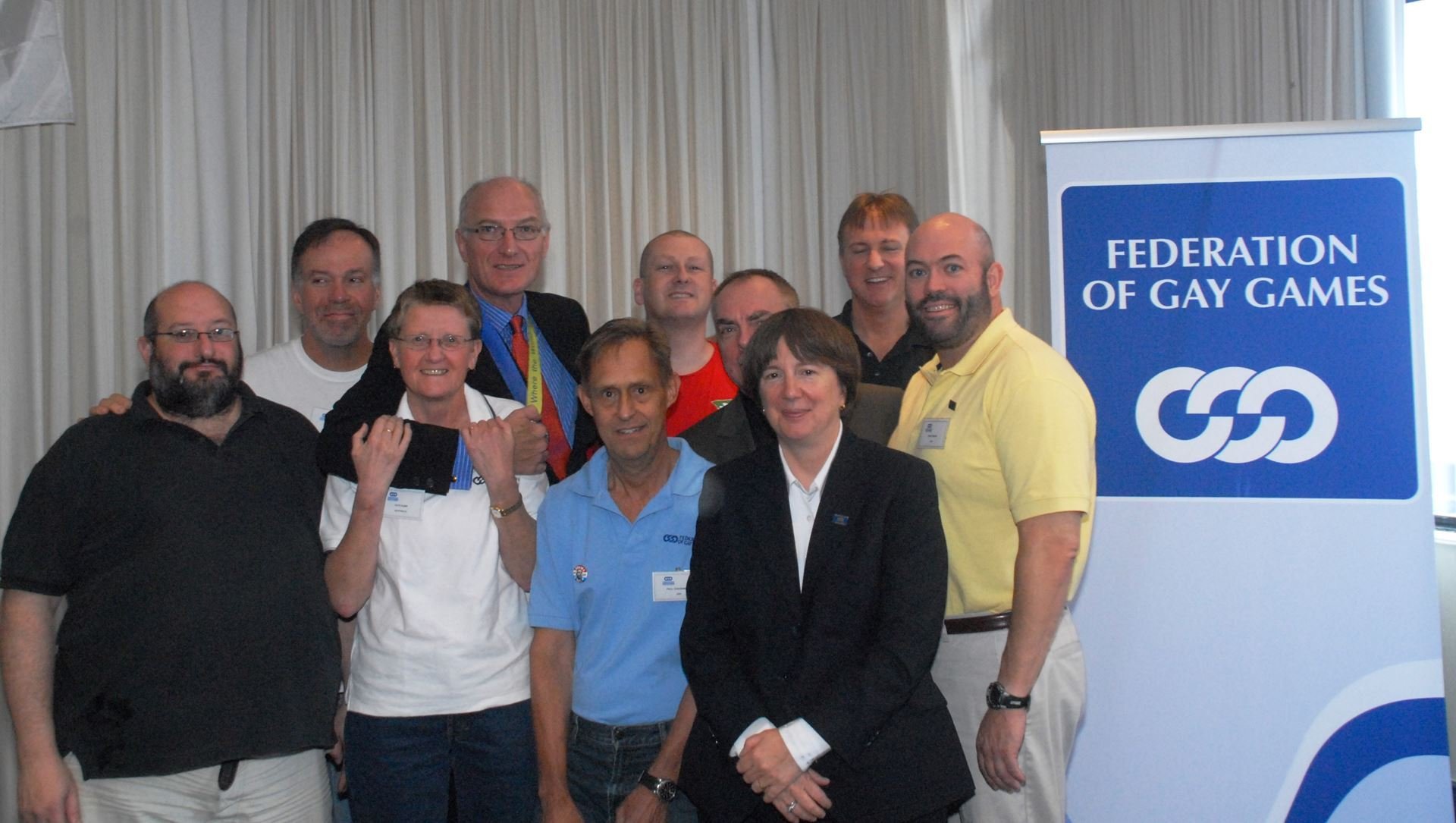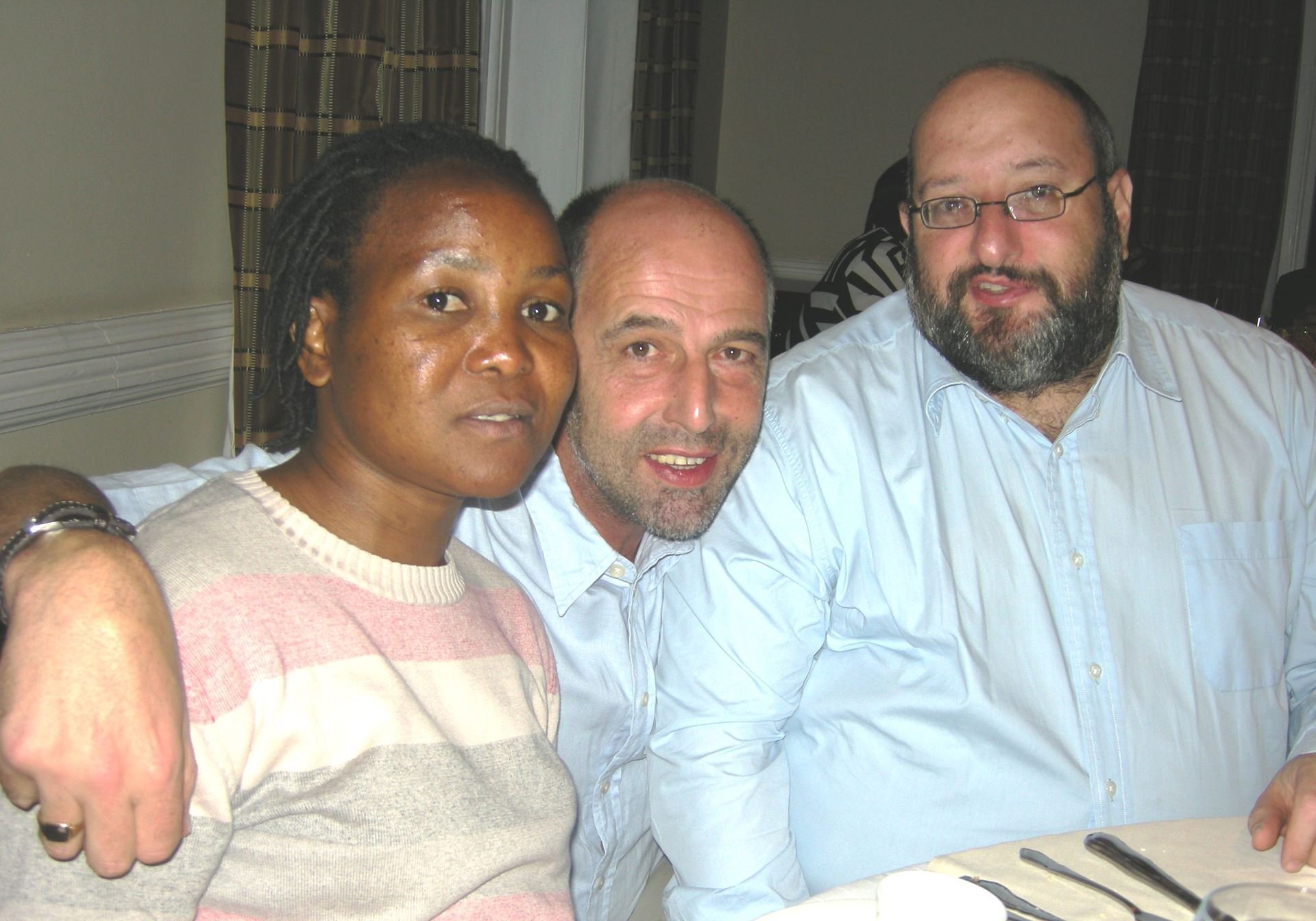
Passing the Torch
17.
Rebuilding the Brand
FGG Board at the 2008 AGA in Cape Town. Kate Rowe is in the front row second from left. Photo: Israel Wright
KATE ROWE: In 2007, I joined the FGG board and took on the role to look at women's participation. I developed the policy that was adopted at the FGG’s 2008 Annual General Assembly in Cape Town, South Africa.
It was there that I met a remarkable woman and runner named Hlengiwe Buthelezi. She was a volunteer at the AGA. We have been friends ever since and she has gone on to be a member of the board and developed the regional AfroGames.
L to R: Hlengiwe Buthelezi, Martyn Pickup, Marc Naimark at Cape Town AGA 2008. Photo: Israel Wright
HLENGIWE BUTHELEZI: In 2008, I was part of the organizing team and the panelist for the FGG Annual General Assembly in Cape Town along with Ian McMahon. Ian and I first competed at Gay Games Sydney 2002, all the way through Gay Games 9: Cleveland + Akron 2014. In 2009, I was awarded the Federation of Gay Games Outstanding Volunteer of the Year Award for the work done the previous year producing the Cape Town AGA.
Emy Ritt at 2008 AGA in Cape Town. Photo: Israel Wright
EMY RITT: Meanwhile, thanks, in part, to the courage and perseverance of GLISA’s Co-President, Wessel van Kampen, FGG and GLISA had finally entered into discussions to explore the possibility of merging their events into a new entity called “One Quadrennial Event,” also known as 1QE. In June, 2011, both FGG and GLISA were awarded the Berlin Pride Civil Courage Award in 2011 for their efforts to reunite the community.
A short video of the ceremony
The FGG Assembly at the 2008 Cape Town AGA
KURT DAHL: It turns out I was not done with the Gay Games after Gay Games VII in Chicago, as a year or so later I was asked to join the FGG board. Little did I know that would quickly lead to me being the Co-President and leading the FGG through GGVIII in Cologne, and the selection of Cleveland + Akron as host of GG9. Cleveland was a great success where we introduced the Steering Committee concept for managing the relationship between the FGG and Host. However, it also led us to removing the original host organization and assigning the license agreement to a new host organization. It was a very difficult but very necessary decision.
All during this time, not only were we managing our way thru GGVIII and GG9, but we were also attempting to bring together GLISA and the FGG into some sort of working relationship and get back to having one global sports and cultural event rather than two large events. In the end, we could not come together and eventually GLISA folded. The Gay Games has remained and has had great success with Gay Games 10 in Paris 2018.
When I stepped off the board in 2018, we had restructured the board, creating several pillars including Gay Games Production, Member Services, etc.
Laura Moore (L) working with Emy Ritt at the 2008 Cape Town AGA
LAURA MOORE: I turned age 50 right after the Chicago Gay Games and put away my skates for what turned out to be more than seven years.
It was hard to imagine I could ever miss a Gay Games. I had been teaching fashion design students at both Pratt Institute in Brooklyn and The Art Institute of NYC. I was also working on a Master’s degree and doing back-to-back apartment renovations. MaryAnn and I moved uptown a week after GGVIII. I knew for a long time that I would be unable to go, but there was a hole in my heart that week.
Sasha Huëllen and Philip Carouge skated in the Gay Games for the first time in Sydney. They formed an IGFSU group in Germany called the Fabulous Skaters. I had the pleasure of skating in the inaugural Fabulous Cup in Cologne, even though I was unable to go to the Gay Games.
One of the highlights was a group skating number with an international array of skaters all wearing white tee shirts emblazoned with gay slurs. The Gay Games provides opportunities for joyous activism.
IVAN YAP: The Straits Games (TSG) is an annual sports event, started in 2002 between the two countries along the straits of Malacca; Malaysia and Singapore. My first exposure with TSG was in 2005 at the event in Kuala Lumpur.
The main objective is to Foster Friendship and Promote Healthy Lifestyle in the LGBT Community. These were the main driving forces which pushed TSG forward over the last 20 years. The soft approach has since gained strong interest from cities like Phuket, Taipei, Hong Kong, Manila, Guangzhou, Samui, Bali, Saigon and Chiangmai, other than Kuala Lumpur and Singapore as hosts the Games.
Participation grew over the years with friends coming from Singapore, Malaysia, Hong Kong, Japan, Taiwan, Thailand, the Philippines, Indonesia, Vietnam, Macao, China, Cambodia, United States, Australia, and the Netherlands.
The sports and social events also varied from Badminton, Bowling, Indoor Volleyball, Welcome Reception, Gala Dinner being the core activities to Table Tennis, Squash, Beach Volleyball, Swimming, Tennis, Basketball, Darts, Snooker, Fun Run, Treasure Hunt, Local Tour, and more.
2005 was the first time I heard about such a great event which gave a good impression of our community. They were recruiting volunteers, but I missed the opportunity. From that moment, I made a vow to ensure this event would be continued for years to come.
2008 was the maiden year where I got the chance to host the event and served as the organising chair. The experience has driven me forward to keep the Straits Games alive, so I became the organising chair for 2011 and 2016. Also in 2016, the FGG honored TSG with its Outstanding Sports Organization Legacy Award at their annual meeting in Sydney.
Being an organiser of this event wasn’t enough for me if I didn’t experience it as a participant. In 2009, I participated in Bowling, and since then, I have not stopped competing.







